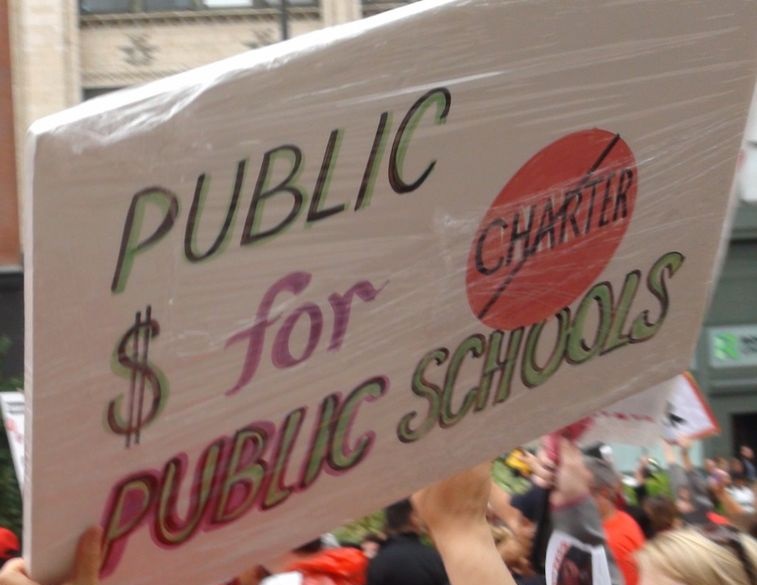
What does it mean to be a public school? Who is responsible for the quality and effectiveness of the public schools in your community? With the quality of public education a front-page issue, it should be easy for parents, taxpayers, and voters to know who has responsibility for how public schools do their job. But recent events in Chicago tell us that answering these questions may be harder than you think.
This week, a small incident involving three Chicago charter schools became the latest example of how complex these questions are and how difficult it becomes for citizens to understand how public schools connect to them. The Chicago Board of Education, appointed by the city’s elected mayor, would seem to be charged with the job of educating the 400,000 children who attend the city’s public schools. Three years ago, they made the decision to close almost 50 district-run schools to meet the academic and fiscal urgencies of a struggling system. But when they decided to close three academically struggling charter schools this fall, their power over public education was proven to be something less than full control.
Tuesday evening, the Illinois Charter School Commission, which is appointed by the state’s governor and not the city’s mayor, reversed the Chicago Board’s decision and took control of the three charter schools’ continued operations. Kalyn Belsha, covering the Commission’s meeting for Catalyst Chicago, said that CSC Executive Hosanna Mahaley Jones acknowledged “the schools were underperforming by both commission and district standards, [but] even so, she recommended that members accept the schools’ appeals to stay open.”
The situation in Chicago represents a growing diffusion of government accountability for public education. In a statement, the CEO of Chicago Public Schools (CPS), Forrest Claypool called on state legislators to “restore local control” and “rein in” the state commission:
Sign up for our free newsletters
Subscribe to NPQ's newsletters to have our top stories delivered directly to your inbox.
By signing up, you agree to our privacy policy and terms of use, and to receive messages from NPQ and our partners.
“Charter schools that are failing to teach children basic math and reading skills should be closed, and the dollars reinvested in schools capable of preparing students for future life success.”
But he and his board no longer have the clear authority to enforce their standards. So, who is actually responsible for the almost $5.7 billion spent on public education in Chicago? Who is actually responsible for the academic performance of the 650 schools, district-operated and charter, and their 400,000 students?
When he last stood for re-election in the wake of the controversy over the closing of 50 public schools, Chicago’s Mayor Rahm Emanuel heard directly from upset parents, the teachers’ union, and community leaders about their unhappiness with his school board. Their votes for his opponent were enough to force the mayor into an unprecedented run-off election and led him to apologize for not listening to the voices of his community. But where do those dissatisfied with public schools in Chicago now turn? Where do those in Newark, Detroit, or New Orleans turn?
When the lines of accountability to those whose children are being taught and those whose taxes from federal, state, and local sources are being spent become blurred, even broken, the very essence of public schools in a democratic society is threatened. The promise of better outcomes that often precedes the limiting or ending of local control of public education may not be worth their cost if they break the tie between school and citizen.—Martin Levine













